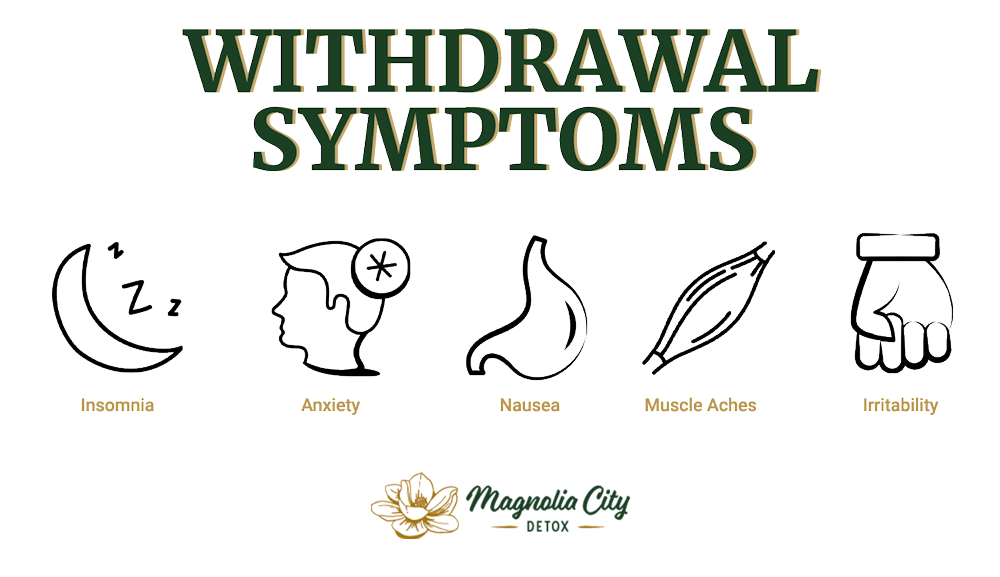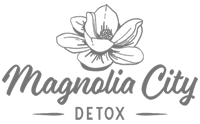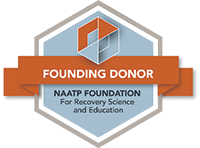The worst thing about developing a substance abuse disorder isn’t really the damage the person gets because of the substance. The worst thing about it is that the hardest drugs to quit also happen to come with the worst drug withdrawals.
Despite all the readily available information on what goes on during medical detox, including the different withdrawal symptoms that come out during the process, many people still think that trying out substances once or twice is harmless and will not get them hooked on. Others even think that even if they get a taste for it, they could quit it any time they want to.
Oftentimes, these people find out how wrong they are when they are already in the grip of substance abuse. Our Houston medical detox program has proven to be highly effective for individuals even with the strongest addictions.
What are the Hardest Drugs to Quit?
While there are many substances that are highly addictive, there are some prescription medications and drugs that have proven to be immensely difficult to quit.
Why is Meth Hard to Quit?
Methamphetamine, also known as crystal meth, is one of the most addictive illegal drugs used today. This illegal substance is a synthetic stimulant made with pseudoephedrine, a common ingredient in many popular cold medications. Meth is a psychoactive stimulant that has a number of effects on the body. The most sought-after effect of meth is the euphoria it produces just seconds after it enters the body. This immediate action is already indicative of how potent meth is as a substance.
The duration of the effects of methamphetamine largely varies among people, as some may claim that they often feel that the effects last between six to eight hours. Others claim that it could last for up to 12 or even 24 hours. This great variation could be attributed to people building a tolerance for the substance, as meth users are known to binge on it, progressively taking greater amounts as they continue to use it.
Another effect of meth that got many hooked on it is the energetic feeling it gives to people. People who are new users of meth say the substance gives them a great feeling of wellness, alertness, intense focus, and tirelessness. These sensations give the new user greater confidence and the misguided feeling of being able to do anything. This is why early users of meth believe it is the ultimate “performance enhancer,” as it gives a laser-like focus and alertness, enabling people to listen and think better and faster, while also removing feelings of being tired or sleepy.
As with any abused substance, meth comes with unpleasant side effects including:
- Aggressive behavior
- Elevated core temperature

- Insomnia
- Disrupted sleep patterns
- Mood swings
- Belligerence
- Premature aging
- Paranoia
- Diminished sense of self and hygiene
- Significant loss of appetite
- Twitching
- Hallucinations
- Psychosis
- Meth sores
Is Alcohol Hard to Quit?
Alcohol is another substance that has taken hold of an untold number of people in the US. The Centers for Disease Control and Prevention (CDC) reveals that more than 140,000 die each year due to excessive alcohol use.
An independent study done by the National Institute on Alcohol Abuse and Alcoholism indicates that at least 14.5 million Americans aged 12 and older had alcohol use disorder. This staggering number is a clear indicator of just how widespread the problem of alcohol abuse is, and it is really no wonder. Alcohol is present in almost all social gatherings and has become a rite of passage for many adolescents.
The problem with alcohol is that it is relatively easy to procure compared to other substances, allowing practically anyone to have alcohol any time they want. It is also a central nervous system depressant, easily affecting the brain after a few drinks. Alcohol, however, is also toxic and is attributed to the development of numerous conditions which could become life-threatening if continued.
Why is Heroin So Addictive?
Chronic pain is a massive concern in the US. At least 50 million people suffer from chronic pain on a daily basis, and the quickest way to deal with it is by using painkillers. The problem is that many painkillers contain opioids or opiates, substances that are highly addictive. Heroin is considered one of the most addictive substances to ever be used illicitly, and those who have tried soon learn that quitting it is immensely difficult.
Heroin produces one of the most intense feelings of euphoria when the “high” hits the person using it, which is why so many people get hooked even after a few tries. This substance, however, also comes with the most harmful side effects, including:
- Liver disease
- Kidney disease
- Pulmonary infections
- Collapsed veins
- Persistent constipation
- Depression
- Infection of heart valves and lining
- Skin infections
- Hepatitis (for those who take it intravenously and share needles with someone else)
- HIV (for those who take it intravenously and share needles with someone else)
- Deterioration of white matter in the brain
- Lack of stress-control skills
- Infertility (in women)
- Miscarriage (for pregnant users)
- Diminished sex drive
- Arthritis or rheumatologic issues
Are Benzos Hard to Quit?
The Anxiety & Depression Association of America states at least 40 million adults aged 18 and older, which is 19.1% of the total American population, suffer from anxiety disorders. This staggering number includes people who suffer from a variety of anxiety-related conditions, including:
- Generalized anxiety disorder (GAD)
- Panic disorder
- Social anxiety disorder
- Specific phobias
- Stress
- Obsessive-compulsive disorder (OCD)
- Post-traumatic stress disorder (PTSD)
- Co-occurring conditions
Treatment for these conditions would typically involve various forms of therapy coupled with specific medications, such as benzodiazepines, more commonly known as benzos. The sheer number of people who have anxiety practically guarantees an untold number of people are sure to develop a habit for benzos, which they eventually do. The nature of anxiety disorders makes it almost impossible for people on benzos to get off it since not taking it would mean suffering from the effects of anxiety once more. A benzodiazepine detox program is entirely necessary when trying to counter benzo abuse.
What Makes these Substances Difficult to Quit?
 Most people who are finding it next to impossible to quit the substances they are on are usually due to the withdrawal symptoms that come with whatever it is they are hooked on. These withdrawal symptoms could be so agonizing for them that they prefer to go back to their dependency than continue experiencing withdrawal.
Most people who are finding it next to impossible to quit the substances they are on are usually due to the withdrawal symptoms that come with whatever it is they are hooked on. These withdrawal symptoms could be so agonizing for them that they prefer to go back to their dependency than continue experiencing withdrawal.
While different people could experience different withdrawal symptoms, the most common ones include:
- Insomnia
- Hypersomnia
- Irritability
- Belligerence
- Mood swings
- Depression
- Anxiety
- Aches and pains
- Tiredness
- Hallucinations
- Delusions
- Nausea
- Vomiting
- Diarrhea
- Profuse sweating
- Shaking
- Memory loss
- Varying degrees of disorientation
- Confusion
- Loss of appetite
- Disruption of sleep patterns
- Pulmonary issues
- Dehydration
Some withdrawal symptoms could be so severe that medication could be needed to mitigate the severe effects. This is why any kind of medical detox should be done in a facility that is properly equipped for it, instead of trying to detox at home. Typically, the most common danger during medical detox comes from dehydration. Many experience severe nausea, persistent vomiting, and severe diarrhea during detox and are unable to replenish the liquids quickly enough to prevent the body from going into shock due to severe dehydration.
Dehydration will also rob the body of essential nutrients and electrolytes, which all help to make the central nervous system properly. This often leads to severe confusion, disorientation, and an apparent lack of recalling recent memories. There are withdrawal symptoms that could be so severe that medication could be needed to mitigate the severe effects. This is why any kind of medical detox should be done in a facility that is properly equipped for it, instead of trying to detox at home.
Sometimes the trouble is not the withdrawal symptom itself, but the complication that was induced by it. These complications could vary from simply being extremely uncomfortable to being life-threatening.
How Effective is Medication-Assisted Treatment in Dealing with the Withdrawal Symptoms?
 There are many documented cases where medication-assisted treatment (MAT) proved to be far more effective in helping the patient deal with withdrawal during detox and rehabilitation. Furthermore, patients who have undergone MAT show a higher likelihood of staying sober longer and resisting a relapse as compared to people in recovery who went through traditional rehabilitation.
There are many documented cases where medication-assisted treatment (MAT) proved to be far more effective in helping the patient deal with withdrawal during detox and rehabilitation. Furthermore, patients who have undergone MAT show a higher likelihood of staying sober longer and resisting a relapse as compared to people in recovery who went through traditional rehabilitation.
The sobriety could be attributed to the action of MAT on the body. Medications used in MAT could either prevent the body from experiencing the best sensations experienced during a “high” or completely quell the cravings that patients feel while in rehab. There are also many reports where patients who received MAT were able to complete rehabilitation in a shorter period than most, as they exhibited faster improvement than most others and less severe withdrawal symptoms.
Magnolia City Recovery Could Help You on Your Way to a Lasting Recovery
 Lasting recovery and sobriety is not about going through the most intensive rehabilitation and therapy. It is about finding the best treatment that the patient responds well to and ensuring that everything done during detox and rehab will actually strengthen the patient’s motivation and dedication to staying away from the substances they had an addiction to, regardless of the conditions and environments that they are exposed to.
Lasting recovery and sobriety is not about going through the most intensive rehabilitation and therapy. It is about finding the best treatment that the patient responds well to and ensuring that everything done during detox and rehab will actually strengthen the patient’s motivation and dedication to staying away from the substances they had an addiction to, regardless of the conditions and environments that they are exposed to.
Let us help you as we have helped countless find their way back to a healthy and productive life after substance abuse.






